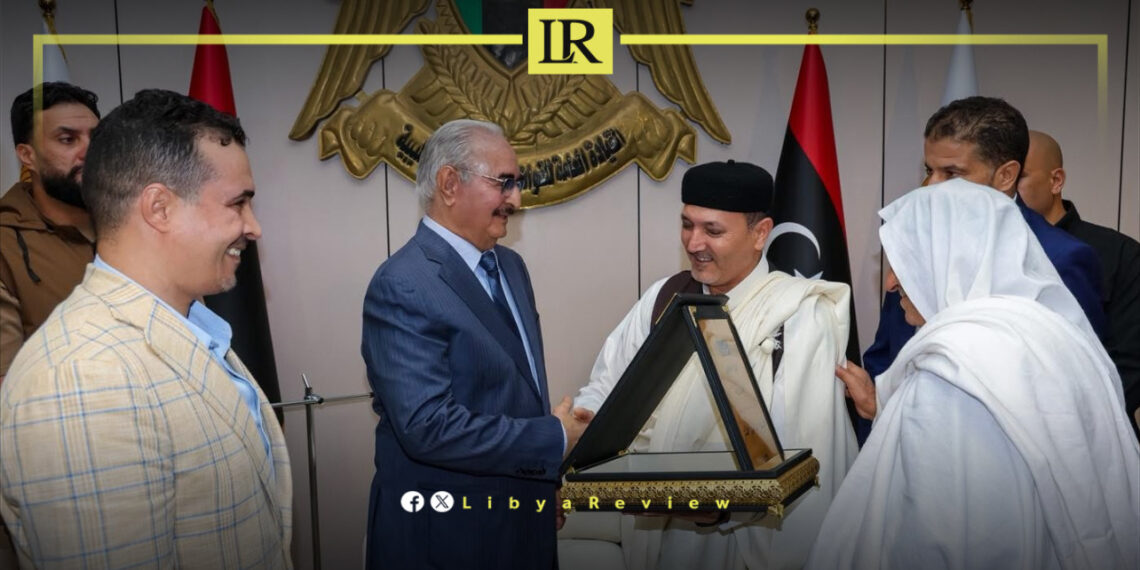The Commander-in-Chief of the Libyan National Army (LNA), Field Marshal Khalifa Abu Al-Qasim Haftar, received a delegation of elders, dignitaries, and professors from the city of Tarhuna at the Field Marshal Khalifa Haftar Military Compound. The meeting was attended by the Prime Minister of the Libyan Government-designate, Dr. Osama Hammad, Chief of the General Staff, General Khaled Haftar, and National Security Adviser, General Abdulrazek Al-Nadhouri.
During the meeting, the Tarhuna delegation renewed their full support for the Libyan Armed Forces, describing them as the “guarantor of Libya’s security and stability.” They commended the army’s ongoing efforts to protect the country’s unity and territorial integrity amid political divisions.
Field Marshal Haftar expressed his deep appreciation for the sacrifices made by the people of Tarhuna, noting that the city had “paid a heavy price for its loyalty to the Armed Forces and Operation Dignity.” He reaffirmed that the army does not interfere in political decisions but “stands firmly with the Libyan people and their choices,” emphasizing that the LNA would safeguard any political agreement reached among Libyans. Haftar stressed that anyone attempting to undermine the people’s will “will find themselves confronting the Armed Forces.”
The meeting underscored growing coordination between local communities and the Libyan military leadership as the country continues to seek political reconciliation and stability.
Libya has been in chaos since a NATO-backed uprising toppled longtime leader Muammar Gaddafi in 2011. The county has for years been split between rival administrations.
Libya’s economy, heavily reliant on oil, has suffered due to the ongoing conflict. The instability has led to fluctuations in oil production and prices, impacting the global oil market and Libya’s economy.
The conflict has led to a significant humanitarian crisis in Libya, with thousands of people killed, and many more displaced. Migrants and refugees using Libya as a transit point to Europe have also faced dire conditions.
The planned elections for December 2021 were delayed due to disagreements over election laws and the eligibility of certain candidates. This delay has raised concerns about the feasibility of a peaceful political transition.
Despite the ceasefire, security remains a significant concern with sporadic fighting and the presence of mercenaries and foreign fighters. The unification of the military and the removal of foreign forces are crucial challenges.


